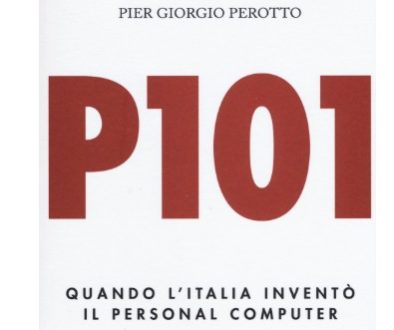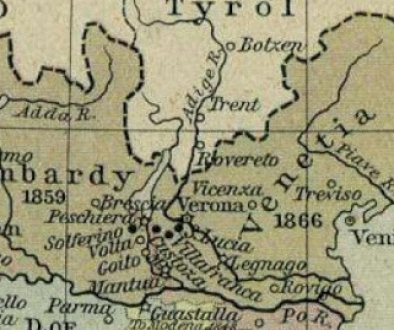I 62 days of Garibaldi and the looting of Naples

GIUSEPPE RESSA (received from http://www.facebook.com/ettore.alfieri1 )
Garibaldi, THE 7 September, he just entered Naples 17 days after landing in Calabria, sitting comfortably by train, without firing a shot, with a few men in tow (the rest of the Red Shirts came the day 9); after arriving at the station, a procession of ten carriages formed and crossed the capital. A harsh judgment on ” military greatness ” of the Nizzardo expedition was also expressed by men who had shared the enterprise with him, like Maxime Du Camp who spoke[231] of “military walk, tiring it's true, but without any risk ” and of Agostino Bertani who defined them “easy victories” causing Garibaldi's anger in his memoirs[232] ; “Today it must be recognized that with Jaeger “… Francis II did not lack arguments to show that the enemy was not Garibaldi arrived in Naples by fair means, sword against sword, chest to chest, but only thanks to an incredible series of about-faces, Field changes, the cowardly leaks of military leaders, Sales of its ships by the navy commanders, and also of soldiers abandoning themselves to their fate and of inconceivable demonstrations of incompetence"[233]
The welcome was enthusiastic but some that should not be thinking uncritically to an unconditional support for different reasons: in the demonstrations there was the hidden direction of the Piedmontese agents who had infiltrated Naples for months and, by Liborio Romano with its Camorra, They had mobilized for a fee (it is said 24 ducats) “the scum of the population who cursed with horrible screams"[234] while the rest of the people he was locked up in the house; some other observer ago, instead, note the fickleness the people of the Capital had, in centuries, joyfully welcomed the most disparate conquerors and in more recent times in succession: the Austrians who had driven the Spaniards, Spanish Bourbons who drove the Austrians, Giuseppe Buonaparte and Murat who had forced Ferdinand and the latter to flee when he returned to the capital from Sicily after the expulsion of the French. Garibaldi gave a speech, took lodgings in Prince Doria's Palazzo d'Angri and, to curry favor with the population, He paid homage to the patron saint of Naples, It was he who showed off a ferocious anti-clericalism that led to it, subsequently, to define the relics of St. Gennaro “humiliating chemical composition” [235], like Pope Pius IX who was branded as a "cubic meter of manure" who presided over a “consistory of wolves"[236]. To fully frame the personality of the “hero of two worlds” should also be taken into account in a letter written to a friend, from Montevideo, in Uruguay, “If you saw it was possible to serve the Pope, the Duke, the devil, just that it was Italian, and give us some bread"[237].
He immediately formed his own dictatorial government headed by the minister of Francis II, Liborio Romano, and as a first act gave way to the powerful southern war fleet (circa 100 ships and 786 guns) Piedmont, the names of the larger ones were immediately changed: THE “Monarch” became “Gentleman King”, the “Bourbon” became “Garibaldi”. The following day War Minister Cosenz telegraphed the following provisions: “All the commanders of the weapons in the provinces and to all commanders , or governors of the squares - This ministry of war manifests itself to officers of all ranks and to the soldiers of the Neapolitan army, will be Mr. dictator General, that all are preserved in their integrity, yes in degrees, that in the belongings: however, the following rules will apply: 1) All the soldiers of the army who yearn to serve, They will present captains, or governors of the squares of the places closest to their domicile, issuing them the necessary deed of adhesion to the current government and their address. 2) Officers who show up with the troops will be kept in their position with full business belongings , but those that will arise in isolation, They will be scored in the second class, to then be appropriately used in the imminent composition of the army. 3) Those military officers, They do not hurry to show up at the home service, remain effectively excluded and dismissed, if they do not make the Act of Accession in the manner indicated, in ten days, starting from the publication of this provision - I communicate this to you for the exact fulfillment of your part - Naples 8 September 1860 – Signed Cosenz ” [238].
The Royal Palace was stripped of everything, the most precious objects were sent to Turin, others sold to the highest bidder. On September 11th the gold of the State Treasury, heritage of the Southern Nation ( equivalent to 3235 billion lire of today, 1670 million euro) and even personal property that the King had left the Capital “disdaining serbare for me a table, in the midst of the shipwreck of the homeland" (numbered a 40 million lire of the time, circa 300 billion lire, 150 million €), all deposited with the Banco di Napoli were seized and declared “national assets".
With the fruits of looting were decreed several lucrative pensions and annuities: at the top of Camorra, the first of which was the beneficiary Marianna De Crescenzo [said the Sangiovannara] sister of Salvatore who was the absolute leader of the underworld and who had guaranteed public order in Naples on behalf of the minister Liborio Romano; Agesilao family to Milan (Failure in regicida 1856 it is defined “hero without parallel between ancient and modern, superior to Scaevola" ), in Piedmont and Garibaldi's officers; for the latter, thanks to the inflation of military ranks in the red shirts (the relationship between officers and troops had become 1:4 when the rule was 1:20) There was a significant outlay; 800 commanders did not provide any service because they had no soldiers under their command but they still received the pay. Six million ducats [180 billion lire, 90 million €], with a decree signed 23 October, They were divided between those who had suffered persecution by the Bourbons (most of them in excellent health), eleven years of back wages were paid to the dismissed military in 1849 “taking into account the promotions that they would have had in the meantime", sixty thousand ducats went to Raffaele Conforti for back wages from 1848 Al 1860 it's up to him why “Liberal minister in office even if for a few weeks” and many other monies ended up in as many pockets with the most disparate and sometimes picturesque motivations as with Dumas the father “to study history” at De Cesare “to study economics “[239].
The looting was so complete that at one point Garibaldi had the Neapolitan bankers threatened with shooting if they refused. “in this way one of the first bankers of Naples came and disbursed one or two million"; illuminating some comments of contemporaries Bourbon on the resulting situation in Naples:”the waste that goes on here of money and stuff is indescribable; they were distributed to Garibaldi's army, that does not come to 20 thousand men, more than 60 thousand coats and a proportionate number of blankets, yet the majority of Garibaldians have neither blankets nor coats; in just one month, in addition to ordinary, 750 thousand ducats were paid by the Treasury for the unjustified extraordinary expenses of the Army alone";”in military things reigns an absolute mess, missing each discipline, everyone does what they want…daily expenses amount to an enormous sum. The military authorities have taken rations for three times as many men as they have to support."; “at this moment the disorder is frightening in all branches of the Administration... the Mazzinians steal and intrigue"; “finance impoverished, the duties are not charged, trade is lost...everything is theft and extortion"; “Here you steal with impunity, everything will fall into ruin if you don't think about shelter"; “the current ministry has descended into the mud, and the mud smeared. Certain ministers have stooped to the point of being surrounded by these rogue leaders, who here are called camorristi" [240].
“Garibaldi himself proved himself, in the future, with insolvent banks and evader with the tax authorities: He asked a loan to Banco di Napoli for his son Menotti, the equivalent of 1 half billion of our old lire, but the latter did not even repay the loan; the bank came forward with his father, “But what you want? I have delivered you, I was also a dictator and you even pretend to return a loan” It was the answer; the Monte dei Paschi di Siena archives give us instead a glimpse of Giuseppe Garibaldi dealings with the IRS. “Mr. Taxman, I find myself unable to pay taxes. I will do it as soon as possible. With best regards”. And that's that. The signature follows.”[241]
In the UK Minister relationships in Naples, Sir Elliot, certainly not pro-Bourbon, it is read: “In reality, the conditions in the country are the worst imaginable. All the old abuses continue, sometimes exaggerated by new officials, who they throw people in prison or are flogged for the slightest suspicion, for the slightest indication of political misconduct, while real crimes go completely unpunished... there is a marked inclination to grab other people's property"[242]. The statement that the revolutionary Flour sends, THE 12 January 1861, Charles Pisano reads: “Uses triple and quadruple than is necessary for the public service … accumulation of four or five jobs for the same person....significant jobs for minors … pensions Untitled wives, sisters, cognate of self-styled patriots”. The same wrote to his friend Ausonio Franchi: “thieves, the escapees from prison, looters and killers, pardoned by Garibaldi, retired from Mordini and Crispi, nor policemen are introduced, the security officers, in-guards and up in the ministries”[243] .
After all, THE “"first evidence" of the looting had been made in the other previously annexed pre-unification states; in recent, after provoking insurrections “piloted” which they caused the legitimate sovereign escape, Cavour had sent the rapacious “Commissioners” with the official task of restoring order against “the revolution” but in reality with the aim of emptying the public coffers “to support the Italian cause": “The repairer Government of Turin, when he had realized his plans with the revolutionary annexation of the other states, saw itself in the midst of enormous resources.....we soon realized the singular way in which the unitarians wanted Italy “one” was administered. The dictator Farini, in a few days, He had worsened the public debt of Modena and Parma 10 millions; Pepoli had aggravated the 13 million Romagna and Baron Ricasoli 56 millions Tuscany”[244].
The revolution also began in the toponymy of the streets of Naples where every trace of the Bourbons was eliminated, even the Bourbon Museum (among the leaders of the most important world) it became “National"; They risked very well the equestrian statues of the southern sovereigns, made by Canova and placed in the square outside the royal palace, it was planned to change their heads by replacing them with those of Garibaldi and Vittorio Emanuele. It also began the persecution of the clergy with the confiscation of church property, the incarcerations and exile of priests who opposed the new course.
The situation in Naples was, then, very confusing, after the first of enthusiasm, real or artfully constructed, It had taken over the people a widespread intolerance because of the anarchy and the many abuses perpetrated by the Red Shirts; many were frequent acts of violence, justified as a showdown with the enemies of the revolution, but which in reality were often just personal revenge (do not forget that the Camorra had been set for months the police leadership); He wrote Costanza Arconati, eyewitness of the events, Lombard to a friend: “The nonsense made by Garibaldi (defined by Garibaldi's Francesco Crispi as "Great soul, brain incapable of governing a village") and the bullying allowed to his soldiers with impunity goes unnoticed...Naples is full of Garibaldi uniforms; They go in a carriage all day, down and up the street to show off their fancy clothes. They get the best accommodation from the City Hall for free... in short they make themselves unbearable due to their arrogance. And to think that it is the general opinion that only Garibaldi's reign lasted a little longer, Francis II was returning to Naples..."[245]. The capital, hit so hard, saw its trade suddenly cease so that movement in its port became insignificant; followed bankruptcies of companies, Castellammare shipyard was closed and laid off workers, the prices of basic necessities began to rise; already a month after Garibaldi's arrival it was commented "everywhere I found the confession of the collapse of the government of Naples... Garibaldi's prestige had fallen, the population desolate" and the latter had reason to do so considering that the money looted belonged to the State, that is, of all southerners and the Thousand “several, miserable parties (da Genova) they returned with red shirts and pockets full of thousand bills"[246].
THE 13 September were dismissed the heads of the United Provinces, the so-called Intendants that were replaced with faithful Governors to the new regime, which they were granted unlimited powers. THE 17 September was approved the oath that every public official had to pay the new King Vittorio Emanuele, many joined the new master abjuring the precedent that had served until a few days before, including almost all the representatives of the judiciary: the Judiciary, the Court of Auditors and the Council of State, who also they had been always very respected by the Bourbon kings who had guaranteed their maximum range..
[231] ” From Palermo al Volturno, memories of a Garibaldian", Hats, 1974
[232] Memory, Einaudi, 1975
[233] Paolo Mieli, In “The Press”, Sunday 9 July 2000, pag.19
[234] George Mundy, The End of the Two Sicilies and the British Navy, Berisio, Naples, 1966, pag.199
[235] in political and military writings, unpublished memories and thoughts, P. 524, cited by Francesco Pappalardo, op.cit.
[236] G.Garibaldi, Memory, BUR, pag.367
[237] Alfonso Scirocco, Garibaldi, The third, pag.136, report made by Antonio Luciani on “Two Sicilies” n. 5 / 2002, once 12
[238] Giovanni Delli Franci, Chronicle of the autumn campaign of 1860, A.Trani publisher, Naples, 1870, once. 297
[239] Angelo Manna, ” The robbers were their “, Sun Books, 1997, modif.
[240] LI from the chapter of the book of Michael Topa, Thus ended the Bourbons of Naples", Fiorentino, 1990
[241] Article Rossella Lama on “Il Messaggero” of 26\11\02
[242] Harold Acton ” The last Bourbons of Naples", Giunti,1997
[243] reported by A. Pellicciari, ” The other Risorgimento”, 2000
[244] Pietro Calà Ulloa, cited by Michele Topa, op.cit., once. 642
[245] Room-Fabietti, ” The contemporary age", Zanichelli, 1972
[246] comments reported by Michael Topa, op.cit. pag.636




